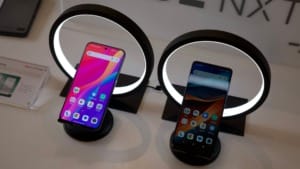Samsung, Google, and Qualcomm share their vision for where mobile AI is heading
Samsung, Google, and Qualcomm share how mobile AI will become more helpful, personal, and invisible in your everyday life.

At the Galaxy Unpacked 2025 event in New York, Samsung introduced its latest devices — the Galaxy Z Fold7, Galaxy Z Flip7 (including the FE version), and the Galaxy Watch8 series. But beyond the hardware, Samsung had something more pressing to discuss: the real direction of artificial intelligence in everyday consumer tech.
Table Of Content
During a special fireside panel, Samsung joined forces with Google and Qualcomm to discuss the future of AI and what they’re now calling “Ambient Intelligence.” It may sound like a buzzword, but the idea behind it is quite clear — AI that works quietly, intelligently, and seamlessly in your daily life without demanding your attention.
How AI is changing through multimodality
You’ve probably seen AI perform impressive tricks before, but these companies are shifting the focus. Instead of AI just reacting to what you ask, they want it to anticipate what you need, and do it without being noticed.
Jisun Park, Corporate Executive Vice President at Samsung’s Mobile eXperience (MX) Business, explained: “We’re building a future where your devices don’t just respond — they become smarter to anticipate, see, and work quietly in the background to make life feel a little more effortless.”
Samsung’s research shows that 60% of users want their devices to anticipate needs without being told. That includes recognising daily patterns and helping with the smaller but time-consuming tasks — like managing notifications or filling out forms — which Mindy Brooks, Vice President at Google, calls “digital laundry.”
Brooks added, “It’s those little things that stack up. The power of AI should be in reducing that digital clutter, not just offering fancy features that look nice but don’t help.”
This vision relies on what the tech world calls “multimodal AI” — the kind that understands voice, text, visuals, and even your habits, and uses all of that to make decisions on your behalf.
Beyond smartphones: AI across devices
Another big takeaway from the discussion is that AI’s future doesn’t stop at your phone. Samsung, Google, and Qualcomm are all looking beyond handheld devices to create a whole ecosystem of intelligent gadgets.
“We’re aiming to bring Galaxy AI to 400 million devices by the end of 2025,” said Jisun Park. That’s double the current reach. But it’s not just about expanding — it’s about connecting everything. Whether it’s your phone, watch, earbuds, or future gadgets, AI should feel natural, like part of your life.
Google highlighted its partnership with Samsung, particularly in integrating Google’s AI assistant, Gemini, into Samsung’s native apps. This allows Gemini to deliver answers that feel personal, not generic.
Qualcomm added that its role is to ensure the hardware behind all these AI features can handle the demand, whether on a high-end phone or a wearable device.
Privacy and AI must go hand in hand
Privacy is always a key concern in discussions about AI. And although it may feel like an overused topic, the way these companies spoke about it offered some fresh insight.
Dr. Vinesh Sukumar, Vice President of Product Management at Qualcomm, stressed, “Personalisation and privacy don’t compete — they support each other. Users need to know their data is safe, and that we respect their boundaries while creating smarter AI features.”
Rather than viewing privacy as a barrier, all three companies consider it essential for trust. If AI is to work silently in the background, you need to feel confident it’s doing so safely and respectfully.
So what does this all mean for you? It means that the future of mobile AI won’t necessarily be flashy or loud. Instead, it’ll be subtle, helpful, and quietly woven into your day-to-day life — whether you’re texting, shopping, or simply going for a walk.
















